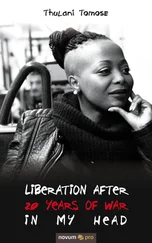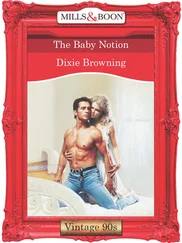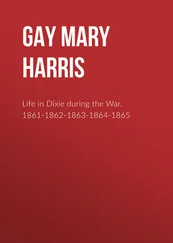Myrta Avary - Dixie After the War
Здесь есть возможность читать онлайн «Myrta Avary - Dixie After the War» — ознакомительный отрывок электронной книги совершенно бесплатно, а после прочтения отрывка купить полную версию. В некоторых случаях можно слушать аудио, скачать через торрент в формате fb2 и присутствует краткое содержание. ISBN: , Жанр: foreign_antique, foreign_prose, Историческая проза, на английском языке. Описание произведения, (предисловие) а так же отзывы посетителей доступны на портале библиотеки ЛибКат.
- Название:Dixie After the War
- Автор:
- Жанр:
- Год:неизвестен
- ISBN:http://www.gutenberg.org/ebooks/41730
- Рейтинг книги:5 / 5. Голосов: 1
-
Избранное:Добавить в избранное
- Отзывы:
-
Ваша оценка:
- 100
- 1
- 2
- 3
- 4
- 5
Dixie After the War: краткое содержание, описание и аннотация
Предлагаем к чтению аннотацию, описание, краткое содержание или предисловие (зависит от того, что написал сам автор книги «Dixie After the War»). Если вы не нашли необходимую информацию о книге — напишите в комментариях, мы постараемся отыскать её.
Dixie After the War — читать онлайн ознакомительный отрывок
Ниже представлен текст книги, разбитый по страницам. Система сохранения места последней прочитанной страницы, позволяет с удобством читать онлайн бесплатно книгу «Dixie After the War», без необходимости каждый раз заново искать на чём Вы остановились. Поставьте закладку, и сможете в любой момент перейти на страницу, на которой закончили чтение.
Интервал:
Закладка:
The Union flag is my flag and I love it, and, therefore, I trust that no one may ever again pass under it weeping. Those little children were not traitors. They were simply human. If in the sixties situations had been reversed, and the people of New York, Boston and Chicago had seen the Union flag flying over guns that shelled these cities, their children would have passed under it weeping and wailing. Perhaps, too, some would have sat on doorsteps and “unbeknownst” to their elders have made faces at commanding generals across the way; while others climbing upon the enemy’s knees would have played with gold tassels and brass buttons.
Our newspapers, with the exception of the “Whig” and the “Sentinel,” shared in the general wreckage. A Northern gentleman brought out a tiny edition of the former in which appeared two military orders promulgating the policy General Weitzel intended to pursue. One paragraph read: “The people of Richmond are assured that we come to restore to them the blessings of peace and prosperity under the flag of the Union.”
General Shepley, Military Governor by Weitzel’s appointment, repeated this in substance, adding: “The soldiers of the command will abstain from any offensive or insulting words or gestures towards the citizens.” With less tact and generosity, he proceeded: “The Armies of the Rebellion having abandoned their efforts to enslave the people of Virginia, have endeavoured to destroy by fire their Capital… The first duty of the Army of the Union will be to save the city doomed to destruction by the Armies of the Rebellion.” That fling at our devoted army would have served as a clarion call to us – had any been needed – to remember the absent.
“It will be a blunder in us not to overlook that blunder of General Shepley’s,” urged Uncle Randolph. 1 1 Gentlemen of the old regime would say: “A woman’s name should appear in print but twice – when she marries and when she dies”; the “Society” page of to-day was unknown to them. They objected to newspaper notoriety for themselves, and were prone to sign pseudonyms to their newspaper articles. Matoaca, loyal to her uncle’s prejudices, requires that I print him only by the name she gives him and the title, one which was affectionately applied to him by many who were not his kin. To give his real name in full would be to give hers.
“The important point is that the policy of conciliation is to be pursued.” With the “Whig” in his hand, Uncle Randolph told Matoaca that the Thursday before Virginia seceded a procession of prominent Virginians marched up Franklin Street, carrying the flag of the Union and singing “Columbia,” and that he was with them.
The family questioned if his mind were wandering, when he went on: “The breach can be healed – in spite of the bloodshed – if only the Government will pursue the right course now. Both sides are tired of hating and being hated, killing and being killed – this war between brothers – if Weitzel’s orders reflect the mind of Lincoln and Grant – and they must – all may be well – before so very long.”
These were the men of the Union Army who saved Richmond: The First Brigade, Third Division (Deven’s Division), Twenty-fourth Army Corps, Army of the James, Brevet-Brigadier-General Edward H. Ripley commanding. This brigade was composed of the Eleventh Connecticut, Thirteenth New Hampshire, Nineteenth Wisconsin, Eighty-first New York, Ninety-eighth New York, One Hundredth and Thirty-ninth New York, Convalescent detachment from the second and third divisions of Sheridan’s reinforcements.
“This Brigade led the column in the formal entry, and at the City Hall halted while I reported to Major-General Weitzel,” says General Ripley. “General Weitzel had taken up his position on the platform of the high steps at the east front of the Confederate Capitol, and there, looking down into a gigantic crater of fire, suffocated and blinded with the vast volumes of smoke and cinders which rolled up over and enveloped us, he assigned me and my brigade to the apparently hopeless task of stopping the conflagration, and suppressing the mob of stragglers, released criminals, and negroes, who had far advanced in pillaging the city. He had no suggestions to make, no orders to give, except to strain every nerve to save the city, crowded as it was with women and children, and the sick and wounded of the Army of Northern Virginia.
“After requesting Major-General Weitzel to have all the other troops marched out of the city, I took the Hon. Joseph Mayo, then Mayor of Richmond, with me to the City Hall, where I established my headquarters. With the help of the city officials, I distributed my regiment quickly in different sections. The danger to the troops engaged in this terrific fire-fighting was infinitely enhanced by the vast quantities of powder and shells stored in the section burning. Into this sea of fire, with no less courage and self-devotion than as though fighting for their own firesides and families, stripped and plunged the brave men of the First Brigade.
“Meanwhile, detachments scoured the city, warning every one from the streets to their houses… Every one carrying plunder was arrested… The ladies of Richmond thronged my headquarters, imploring protection. They were sent to their homes under the escort of guards, who were afterwards posted in the center house of each block, and made responsible for the safety of the neighborhood… Many painful cases of destitution were brought to light by the presence of these safeguards in private houses, and the soldiers divided rations with their temporary wards, in many cases, until a general system of relief was organised.” 2 2 General Ripley, in “Confederate Column” of the “Times-Dispatch,” Richmond, Virginia, May 29, 1904.
CHAPTER IV
The Coming of Lincoln
The South did not know that she had a friend in Abraham Lincoln, and the announcement of his presence in Richmond was not calculated to give comfort or assurance.
“Abraham Lincoln came unheralded. No bells rang, no guns boomed in salute. He held no levee. There was no formal jubilee. He must have been heartless as Nero to have chosen that moment for a festival of triumph. He was not heartless.” So a citizen of Richmond, who was a boy at the time, and out doors and everywhere, seeing everything, remembers the coming of Lincoln.
One of the women who sat behind closed windows says: “If there was any kind of rejoicing, it must have been of a very somber kind; the sounds of it did not reach me.” Another who looked through her shutters, said: “I saw him in a carriage, the horses galloping through the streets at a break-neck speed, his escort clearing the way. The negroes had to be cleared out of the way, they impeded his progress so.” He was in Richmond April 4 and 5, and visited the Davis Mansion, the Capitol, Libby Prison, Castle Thunder and other places.
His coming was as simple, business-like, and unpretentious as the man himself. Anybody who happened to be in the neighbourhood on the afternoon of April 4, might have seen a boat manned by ten or twelve sailors pull ashore at a landing above Rockett’s, and a tall, lank man step forth, “leading a little boy.” By resemblance to pictures that had been scattered broadcast, this man could have been easily recognized as Abraham Lincoln. The little boy was Tad, his son. Major Penrose, who commanded the escort, says Tad was not with the President; Admiral Porter, General Shepley and others say he was.
Accompanied by Admiral Porter and several other officers and escorted by ten sailors, President Lincoln, “holding Tad’s hand,” walked through the city, which was in part a waste of ashes, and the smoke of whose burning buildings was still ascending. From remains of smouldering bridges, from wreckage of gunboats, from Manchester on the other side of the James, and from the city’s streets smoke rose as from a sacrifice to greet the President.
Читать дальшеИнтервал:
Закладка:
Похожие книги на «Dixie After the War»
Представляем Вашему вниманию похожие книги на «Dixie After the War» списком для выбора. Мы отобрали схожую по названию и смыслу литературу в надежде предоставить читателям больше вариантов отыскать новые, интересные, ещё непрочитанные произведения.
Обсуждение, отзывы о книге «Dixie After the War» и просто собственные мнения читателей. Оставьте ваши комментарии, напишите, что Вы думаете о произведении, его смысле или главных героях. Укажите что конкретно понравилось, а что нет, и почему Вы так считаете.












